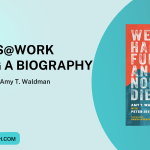Your Toolbox: What You Need to Make 2015 Rock! By Rochelle Melander
When we take a trip, we rent condos or homes. The practice gives us more space and saves us money on food. It’s also often cheaper than a hotel room. And, as a result, we’ve been able to stay in real neighborhoods and get a feel for the city we’re visiting.
After a few condo stays, I noticed a pattern: we’d go food shopping and while making our first dinner or breakfast, we’d discover missing essentials—coffee filters, dish soap, and so forth. So we’d run back out to the store to stock up. After several trips, we’d collected multiple kinds of coffee filters, boxes of plastic silverware, and a variety of wine openers. Instead of repeating the pattern, I created travel box packed full of the essentials we might need on future stays, including coffee filters, storage bags, and salt and pepper shakers. That box stays packed and goes with us on every trip. When we get home, I restock it so that it’s ready for the next adventure.
As I restocked our travel box this time, I wondered: What if I had this kind of box for my writing life? What would I need to make my writing time productive? As I doodled my answers, it became pretty clear that the things I needed couldn’t be put in a box (silly me): scheduled writing time, journaling, exercise, idle time, reading, connecting with writing colleagues, and connecting with readers.
I write a good deal about creativity and productivity, and there are the things productive writers do. They:
+schedule writing time
+write regularly
+exercise
+take time to be idle and dream
+read
Beyond those basics, the habits of writers vary. Some of you swear by writing first thing in the morning. Others must write in that hour before dinner. Some of you choose paper while others write on your laptop. As you say good-bye to this year and begin to imagine a new one, try this.
1. Review. Review your most productive times in 2014 (and before) and record what was going on. What did you do to support such productivity? You might write a bit of narrative about each experience or simply list what practices made you more productive.
2. Box it. Now that you’ve examined your most productive times, you know what you need to put in your writing box. But make a list anyway. We forget this stuff when we’re stressed by deadlines, chaos, or illness. Write your best tools in BIG letters—and post it in your office.
3. Practice it! Get out that calendar and a journal—and make notes about how you’re going to put these tools into practice. Schedule your writing time. Plan artist dates. Clean up the office. Add walking time.
Got that? Good.
Keep this exercise handy and repeat it, as needed, when you get blocked and can’t remember what works. (Believe me, it happens.)
Here’s to a brilliant, beautiful New Year filled with much writing!















